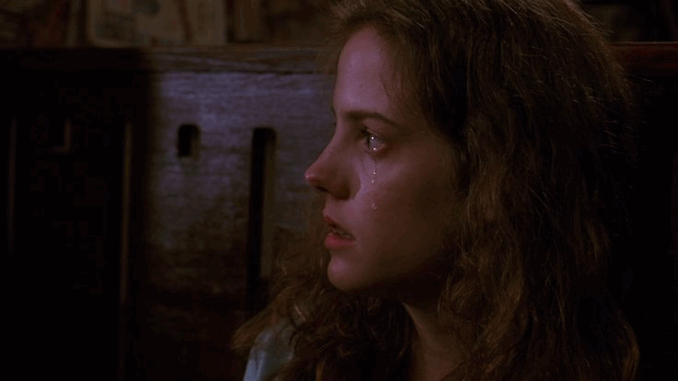
While Fried Green Tomatoes is celebrated for its strong female leads and emotionally resonant storytelling, it is the quiet presence of Big George—the stoic cook of the Whistle Stop Café—that provides one of the film’s most powerful moral anchors. Often overlooked in critical discussions, Big George is a character whose strength, loyalty, and dignity speak volumes, even in silence.
A Man of Few Words, But Lasting Impact
Big George is introduced as the adopted son of Sipsey and an integral member of the Threadgoode household. From the moment he steps into frame, it’s clear he is more than just the café’s cook—he is a pillar of its very foundation.
Towering and gentle, Big George commands a quiet respect. He says little, but his actions resonate deeply. His every movement speaks to a life lived under scrutiny, pressure, and the weight of racial injustice—but never surrender.
In the racially segregated Alabama of the early 20th century, Black characters were often relegated to the background. But Big George, through his consistent presence and dependable strength, forces viewers to recognize the labor, sacrifice, and humanity of Black individuals often erased from such narratives.
The Unspoken Reality: Navigating Racism with Dignity
Big George’s existence in the Jim Crow South is fraught with danger. Every interaction, every gesture, must be carefully measured in a world where a Black man could be lynched for a perceived slight. And yet, he chooses to live with integrity.
He cooks for both Black and white patrons at the café, serves the community with pride, and raises his family with honor—all while enduring systemic inequality. His stoicism isn’t apathy; it’s survival.
When Frank Bennett disappears and the law comes sniffing around, Big George becomes an easy scapegoat in a racially biased system. He is arrested and brutally beaten—not for any real evidence, but simply because he’s a Black man close to the scene. The fact that he survives such violence, both physically and spiritually, is a testament to his will.
The Truth Behind the Barbecue: A Quiet Heroism

One of the film’s darkest and most controversial plot points is the implication that Frank Bennett was murdered and served as barbecue—a storyline laced with horror, justice, and mystery. While Sipsey is the one who ultimately kills Frank to protect Ruth’s son, it is Big George who grills the meat, fully aware of what he’s doing.
This action is often interpreted as grotesque, even comedic in its irony. But deeper down, it’s a radical act of protection. Big George helps conceal a crime not out of malice, but because he understands what the legal system will do to his community if the truth gets out. It’s a brutal choice—made out of love, loyalty, and a need to protect the innocent.
In this moment, Big George shifts from a passive observer to an active participant in justice. He becomes an unsung hero whose actions ensure Ruth’s son is safe from a monster.
Loyalty to the Threadgoode Family
More than just a cook, Big George is family. Raised by Sipsey in the Threadgoode household, he grows up with Idgie and carries with him the values of community, care, and quiet resistance.
He never abandons the café, even when things grow tense. He continues working with pride and raises his own children in Whistle Stop. His loyalty to Idgie and Ruth is not servitude—it’s mutual respect. It’s built on shared survival.
Their bond transcends race in a time when that was almost unthinkable. It shows a radical version of chosen family, where love and loyalty break through the social barriers of the era.
A Black Character with Depth and Purpose
Too often in period films, Black characters are reduced to stereotypes. Big George, however, stands out as a fully realized individual. He is a loving father, a skilled artisan in the kitchen, a survivor, and a protector.
His portrayal doesn’t rely on exaggerated speech or comic relief. Instead, he is quiet strength personified. The filmmakers never let his race define his entire identity, but they also never ignore it. That balance is rare—and powerful.
Legacy: Strength in Silence
Big George may not get a grand monologue or a dramatic exit, but his presence reverberates through every corner of the film. He is a reminder that history was not only shaped by the loudest voices, but also by those who endured silently—who protected, provided, and persevered.
His contribution to the story of Fried Green Tomatoes is as essential as Idgie’s fire or Ruth’s grace. He represents the countless real men who worked behind the scenes, unseen but not unimportant, carrying entire communities on their shoulders.
Final Thought
Big George isn’t just a character in Fried Green Tomatoes. He’s a symbol of quiet resilience, unyielding loyalty, and the dignity of labor. In a world that tried to crush him, he stood tall—not with weapons, but with wisdom, love, and a burning sense of justice that needed no words.
